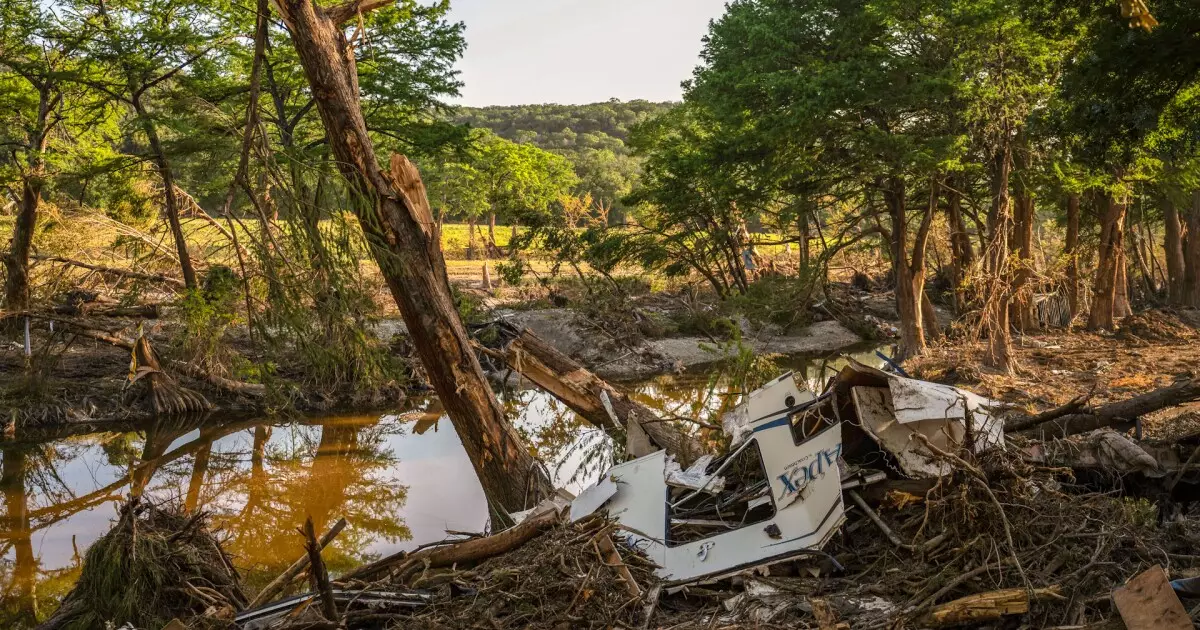Texas Flood Crisis Sparks Political Firestorm: Will Legislation Save or Sabotage the Future?

In a stark reminder of nature’s fury, recent floods in Texas have left a trail of destruction and heartbreak unmatched in recent memory. The flooding along the Guadalupe River during the July 4 holiday weekend resulted in the tragic loss of 135 lives and inflicted damages totaling billions of dollars. Amid the chaos and sorrow, there emerges a broader debate—are Texas lawmakers truly committed to safeguarding their communities, or are they instead preoccupied with ideological battles that threaten the very infrastructure needed for resilience?
The immediate political response was swift. Governor Greg Abbott, a figure often cast as a conservative champion of limited government, recognized the urgency of flooding and announced a special 30-day legislative session. The agenda is packed: improving flood warning systems, enhancing emergency communication networks, and allocating funds for response and recovery. While these steps are crucial, they also serve as a distraction from the deeper, systemic issues—namely, how the state handles local financing and the ongoing attempts to restrict taxing authority in a time of crisis.
What’s particularly alarming in this scenario is the emphasis on restricting local governments’ ability to issue bonds or raise property taxes. Despite the disaster’s severity, many bills proposed in this special session aim to impose supermajority thresholds for approving bonds or taxes, or even eliminate property taxes altogether by 2031. Such measures threaten to undermine the very financial tools that localities need to build resilient infrastructure, cope with climate change, and respond promptly when disaster strikes.
The Underlying Politics of Tax and Bond Restrictions
The push to constrain local budgets and borrowing isn’t new, but its timing amid a natural calamity reveals a hidden political motive. Lawmakers, driven by ideological perceptions of government overreach, are keen to impose stricter control—often under the guise of fiscal responsibility—while simultaneously undermining the financial capacity of local authorities. Their goal? To shift the burden of disaster response onto the federal government and avoid raising taxes locally, even in the face of mounting evidence that such restrictions only hinder effective disaster mitigation.
This approach ignores an essential truth: the severity of climate-related events is only set to increase, particularly in a rapidly growing state like Texas. The Texas Water Development Board estimates that controlling flooding alone would cost over $54 billion—an astronomical figure that can only be managed through robust, flexible financing options like bonds. These bonds, benefiting from tax exemptions, are the most affordable way for localities to fund critical infrastructure projects, from flood barriers to resiliency upgrades.
Yet, lawmakers seem hell-bent on restricting these tools, proposing constitutional amendments that demand three-fifths voter approval or abolish local property taxes entirely within the next decade. Such policies threaten to make Texas’ flood defenses even weaker and more reactive rather than proactive. Ironically, these ideological stances come at a time when the state faces its greatest challenge: balancing fiscal discipline with genuine readiness.
The Economic and Social Toll of Political Posturing
The economic ramifications stretch far beyond immediate damages. The flooding has inflicted between $18 billion and $22 billion in damages, severely impacting tourism, local economies, and community stability. Recovery will be prolonged, costly, and dependent on sound infrastructure investments—investments that can only be financed through strategic borrowing on favorable terms.
What’s more troubling is the failure of transparency in risk disclosure. Recent bond issuances by local entities like Kerr County revealed little about the potential for flooding-related damages, despite regional flood plans thematically warning of such risk. This lack of transparent disclosure not only jeopardizes investor confidence but also places taxpayers in the dark about the true financial exposure of their communities.
Persistent efforts to limit local borrowing and increase voter thresholds are, therefore, shortsighted and politically motivated. They threaten to entrench a cycle where communities cant afford to build resilience, ultimately amplifying the long-term costs of natural disasters. When local governments are hamstrung by overly restrictive policies, they become less capable of reacting swiftly, increasing the human and economic toll.
The Political War Over Finances and Who Pays the Price
In the debate over property taxes and bond limits, it’s clear that ideological rigidity often trumps pragmatic necessity. The targeted proposals—proposing to shift school debt payments to the state and replace property taxes with value-added taxes—are ambitious but perilous. They ignore the reality that local control and flexible financing are vital to managing a state as expansive and diverse as Texas.
The political classes seem more inclined to pursue symbolic victories—like constitutional amendments requiring supermajority voter approval—than to invest in durable solutions. These battles distract from the monumental investments needed. For example, the statewide flood plan estimates a minimum of $54 billion in infrastructure needs, yet the budget available is orders of magnitude lower.
Meanwhile, local entities such as Kerr County are trying to adapt in the face of shifting legal frameworks and slow federal reimbursements. Their move to calculate a higher property tax rate, even within existing laws, showcases the desperation of local governments seeking to bridge funding gaps—a stark contrast to the ideological intransigence emanating from the Capitol.
Ultimately, Texas’ approach to disaster preparedness and infrastructure investment reveals a fundamental question: Will the state fund resilience and mitigation as a priority, or allow ideological dogma to impede progress? The answer may determine whether Texas can survive—or succumb—to future calamities, casualties, and economic devastation wrought by its own governance choices.





